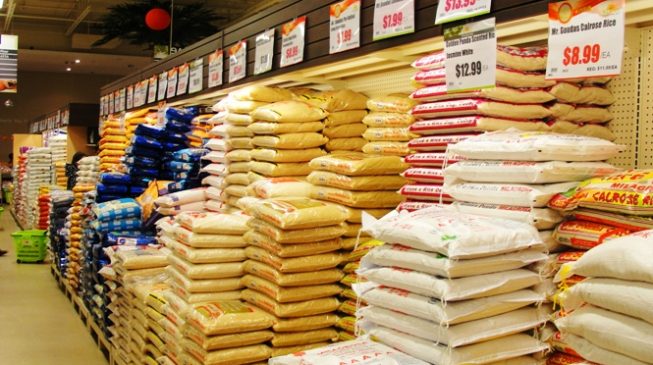
The federal government has cautioned Nigerians over the unhealthy status of imported rice smuggled into the country.
At a media briefing in Lagos on Monday, Lai Mohammed, minister of information, said the government could not guarantee the healthy status of the rice having spent months on the high seas and warehouses.
He appealed to Nigerians to complement the efforts of the government by consuming only locally-grown and processed rice which he said “is fresher, tastier and healthier’’.“We don’t know where or how imported rice is made or how old it is. It is reported that most of the rice dumped on us are old and probably rejected. The citizens of those countries do not eat this rice. The citizens of Benin Republic also do not eat it. But they send it to us,” he said.
“Unhealthy foods are dangerous to our health. So, let’s eat what we can vouch for.’’
He, however, noted that rice smuggling was the biggest challenge facing rice production in Nigeria.
Quoting the Rice Millers Importers and Distributors Association of Nigeria (RIMIDAN), he said more than two million metric tonnes (MT) of parboiled rice were smuggled into Nigeria in 2017.
Mohammed said smuggled rice was primarily sourced from Thailand and India and came into Nigeria through the country’s borders with Benin, Niger and Cameroon.
“In Benin Republic, the total demand for white rice (white rice is consumed in Benin, against parboiled rice in Nigeria) is 400,000 MT. Yet, the country with a population of about 11 million imports between one million and 1.2m MT of rice annually,: he said.
“Who are they importing for? Nigerians, of course. In fact, as Nigeria’s rice import falls, Benin’s rice imports increase. Most of the parboiled rice imported by Benin eventually land in Nigeria through smuggling.’’
The minister said smuggled rice costs between N11,000 and N13,000 per 50kg bag, while Nigerian-processed rice sells for between N14,500 and N15,000 per 50kg bag.”
Explaining why the price of local rice was higher, he said Cameroon and Benin Republics had lowered tariff payable on rice to five percent to encourage importation and subsequent smuggling into Nigeria.
He added that Thailand and India where the smuggled rice were sourced also gave a high level of subsidies to rice farmers and rice processors.
The minister disclosed that the local rice producers had made some representations to the government on how Nigerian rice could compete favourably, in terms of pricing, with the heavily subsidised imported rice.
He assured that the government would work on the presentations to formulate policies and take steps that will bring down the price of local rice.
“Nigerians should remember that every time they eat imported rice, they are eating the jobs that would have been created for Nigerians,” he said.
“It is important for Nigerians to know that when they consume imported rice, they are creating jobs in India and Thailand and destroying jobs across our country.
“Today, we have rice farmers in all states and all geopolitical zones. In fact, most of us have friends and relatives who are farming rice. So if we don’t patronise their products, we are destroying their livelihoods.”
He concluded that the government would embark on a massive nationwide campaign to sensitise compatriots on the need to support the rice revolution by consuming local rice
Comments